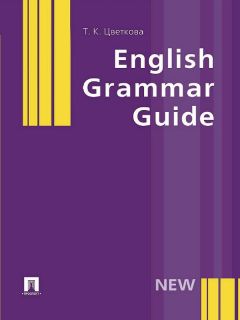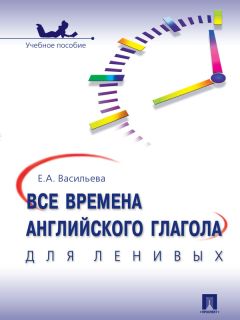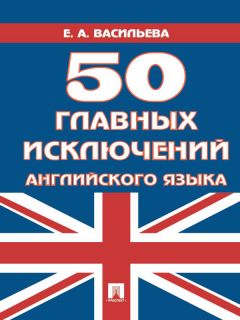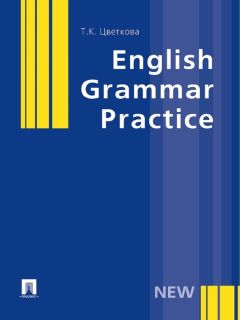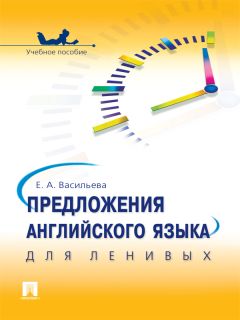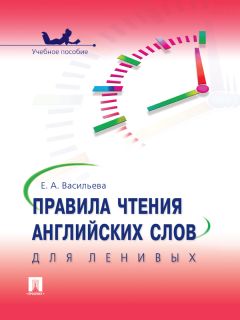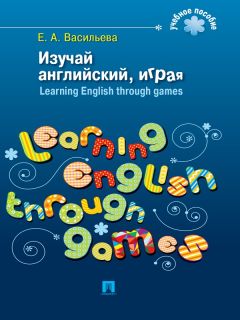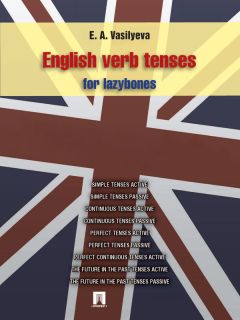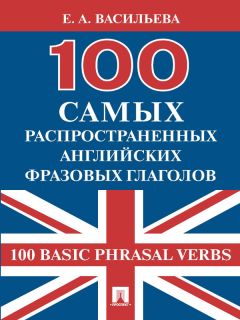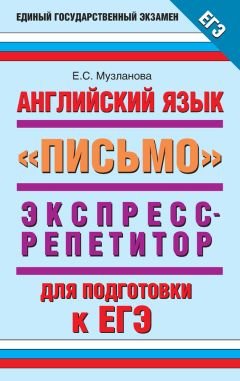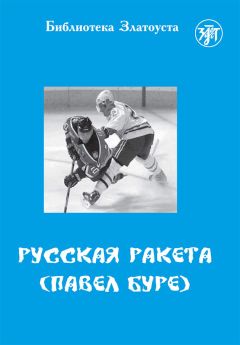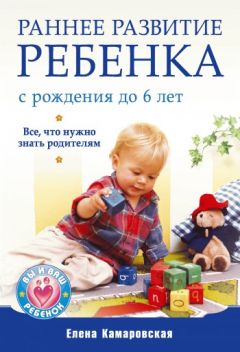Елена Васильева - English grammar: 100 main rules
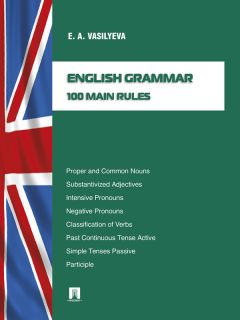
Все авторские права соблюдены. Напишите нам, если Вы не согласны.
Описание книги "English grammar: 100 main rules"
Описание и краткое содержание "English grammar: 100 main rules" читать бесплатно онлайн.
As soon as you started learning English you have to study basic grammar rules that help understand the language structure and as a result communicate effectively. In the reference guide 100 most common grammar rules are put together and explained in a clear form of tables with several examples to each rule. Referring to this grammar guide may be helpful for those students who have recently started learning English and still find grammar not simple to understand as well as for those advanced users who need just refresh their knowledge of English grammar or clarify some grammar points.
If you don't order the dessert, I won't either.
Olivia doesn't know his address, Andrew doesn't know either.
– agrees with a singular verb
Does either of you speak Chinese?
Has either of you two seen Harry?
RULE 25. All, Bothall
– with uncountable nouns and plural countables
– has a generalized meaning
All children need love.
Olivia said good buy to them all.
– the pronoun all agrees with plural verb if it's used with plural countables; if it refers to uncountable nouns, then pronoun all agrees with singular verb.
All the students were ready.
All the milk was fresh.
All the book was torn out.
Note
You may use the whole + noun instead of all the + noun
when it goes with a singular countable noun.
The whole book was torn out.
– If all precedes other noun modifiers (the, this, my, etc), then it can be used either as all + noun, or all of + noun.
Andrew invited all his (all of his) friends.
It's important to answer all the (all of the) questions.
Note
Use all of before object pronouns, but just all after them.
Andrew invited all of them (them all).
All of you (You all) have various questions.
– As the subject it agrees with either singular or plural verb, that depends on the context.
All is well that ends well.
All have gone.
– If the subject is a personal pronoun, then all is put between and the verb.
We all decided to dinner out the next day.
They all skate in winter.
– If there is a linking verb, an auxiliary or modal one, then all goes after the first verb.
We are all here.
They have all seen the movie.
You should all take part in this conference.
Note
All is quite often substituted by comounds everybody, everyone, everything.
All are happy. => Everyone is happy.
All is ready. => Everything is ready.
both
– with plural countables
– refers to two persons or things
I like both (ties).
Both (applicants) are equally experienced.
– agrees with a plural verb
Which project is better? Both are good.
– Use of between both and another determiner.
Both of these restaurants are expensive.
Olivia knows both of his brothers.
– Use both of with a personal object pronoun (him, her, them, etc); use both after a personal subject pronoun (he, she, they).
Both of them (They both) are suitable.
It's a game that both of us (we both) can play.
RULE 26. Many/Much, Few/Little, Enoughmany/much
– many with countable nouns; much with uncountable nouns
– refer to indefinitely large number of things or persons
Are there many books on the desk?
Will it take much time to get to the centre?
– mostly used in negative sentences and questions
How many friends have you got?
There isn't much sense in it.
– If many/much are determined by as, so, too, very, use them in affirmative sentences as well.
There were too many variants to choose.
They have changed so much this year.
– If many/much are the subject or the subject attribute, then they can be used in affirmative sentences too.
Much of the work has already been completed.
Many students attend extra classes.
Note
Words a lot (of), lots (of), a plenty (of) are commonly used in affirmative sentences.
We have a lot to discuss.
There are lots of easy ways to follow.
They still have plenty of snow.
few, little
– few with countables; little with uncountables
– refer to indefinitely small number off things or persons; the implied meaning is "not enough"
Nick is sad because he has few friends here.
There was little flour, so I couldn't bake a cake.
– The indefinite article a/an with the pronouns few/little changes the implied meaning for positive "enough".
John has a few friends there.
There was a little flour, so I could bake a cake.
– It is preferable to use any in negative sentences and questions.
Does John have any friends there?
Andy doesn't have any friends there.
Is there any flour at home?
There is no flour at all.
enough
– with both countable and uncountable nouns
– refers to indefinite but sufficient number of something
You have enough time to write an article.
Andrew told them enough.
RULE 27. One/Onesone
– refers to an undetermined person in general
One cannot learn a language in three months.
One should pay taxes.
Note
In the informal language undetermined persons can be as well expressed by the pronouns you or they.
You must always try to do your best.
They say the weather is changing.
Note
The pronoun one can be used in the possessive form (one's) or in its reflexive form (oneself).
One must learn from one's mistakes.
One should be careful not to hurt oneself.
– agrees with a singular verb
One never knows what may happen.
More than one variant is appropriate.
– substitutes the noun to avoid repetition; often used in Which-questions
See those two handsome men? Andrew is the taller one.
Which dress has Olivia chosen? The red one.
Note
the plural form of the pronoun is also possible.
Andrew bought three apples: a red one and two yellow ones.
Your problems are the ones that understood by many parents.
RULE 28. Other, Others, Another, the Other, the Othersother
– with countables and uncountables
– The implied meaning "different" is used for indefinite number of things or persons.
Can you bring other shoes, I don't like these ones.
I can't meet you today. Let's do it some other time.
Let's watch other movie, I'm scared.
others
– substitutes a plural noun
Others may know us better than we know ourselves.
Some tourists stay on the beach, others explore the town.
another
– only with singular countable nouns
– The implied meaning is "additional, one more".
Please give me another chance.
The example is not clear? Would you like another?
the other
– with countable plural or singular nouns
– The implied meaning "remaining, the rest" is for definite number of things or persons.
There are two pens on the desk – one is blue, the other is red.
You may take one or the other. You cannot take both.
the others
– substitutes plural nouns
There were three keys in the drawer. One is here, where are the others?
Don't forget the others.
RULE 29. Reciprocal PronounsReciprocal Pronouns
Конец ознакомительного фрагмента.
Текст предоставлен ООО «ЛитРес».
Прочитайте эту книгу целиком, купив полную легальную версию на ЛитРес.
Безопасно оплатить книгу можно банковской картой Visa, MasterCard, Maestro, со счета мобильного телефона, с платежного терминала, в салоне МТС или Связной, через PayPal, WebMoney, Яндекс.Деньги, QIWI Кошелек, бонусными картами или другим удобным Вам способом.
Подписывайтесь на наши страницы в социальных сетях.
Будьте в курсе последних книжных новинок, комментируйте, обсуждайте. Мы ждём Вас!
Похожие книги на "English grammar: 100 main rules"
Книги похожие на "English grammar: 100 main rules" читать онлайн или скачать бесплатно полные версии.
Мы рекомендуем Вам зарегистрироваться либо войти на сайт под своим именем.
Отзывы о "Елена Васильева - English grammar: 100 main rules"
Отзывы читателей о книге "English grammar: 100 main rules", комментарии и мнения людей о произведении.







